
A Princess Christmas Part 3: Movie Adaptations, Mostly, for these Lastest Five
Snow White is the key story in this next quintuplet that sees her befriending, not fighting, the three giants she finds. Jasmine also gets a tale in which she learns how to win, and lose, with an altruistic spirit. The other booklets simply retell the films from which they derive...they're fine, but offer no surprises.
D
12/24/20246 min read
Disney's Princess Advent Calendar Dec. 11-15
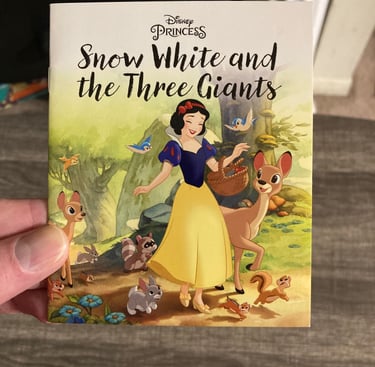



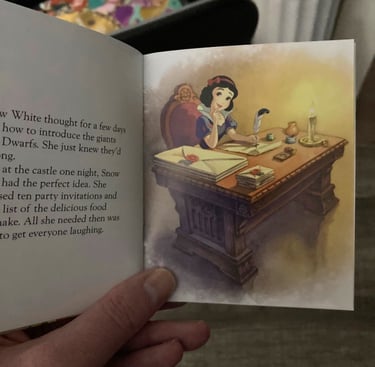

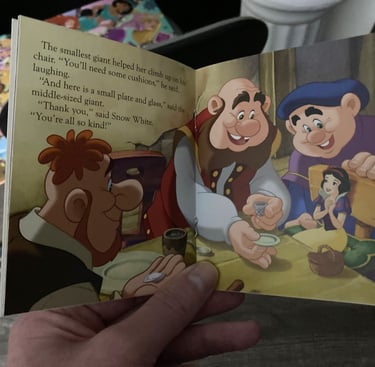

In a tale about teamwork and having fun, Jasmine is made captain of a pack of princesses set to compete in the so-called Princess Polo Games. Jasmine is initially underwhelmed by her three teammates, all of whom don’t seem particularly interested in the sport. But the princess perseveres, learning the interests and quirks of her girls and turning them into advantages out on the field. This brings her team to repeated victory and, eventually, to the finals where the winning team will claim the coveted golden trophy. And yet, as they begin their final game, Team Jasmine notices their fellow competitors aren’t having much fun, the three rival princesses being abused more than applauded by their captain. Jasmine, then, decides to smack the ball to her dejected counterparts, giving them a chance to compete—and indeed, once given a fair chance, the three maidens score enough goals themselves to ultimately win the game. And yet, it’s Jasmine’s team who receives the golden trophy—not for winning or losing, but for showing grace and sportsmanship to a team lacking the proper leader.
December 11th
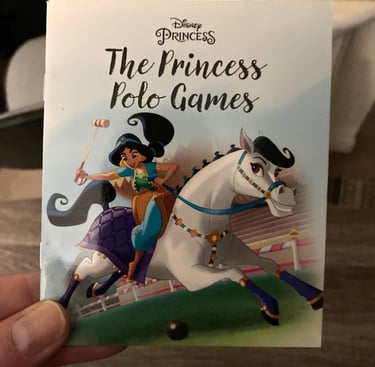

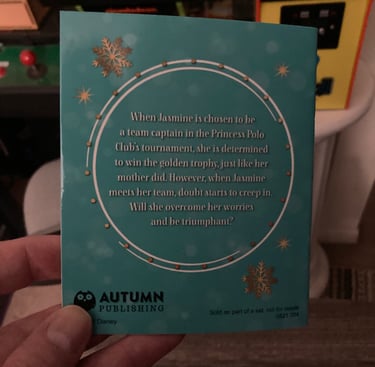

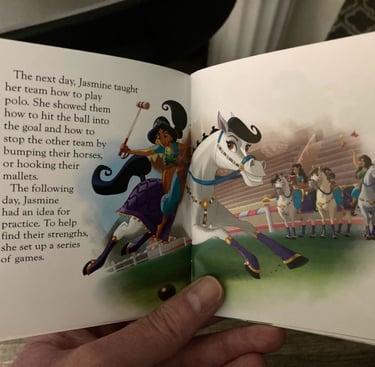

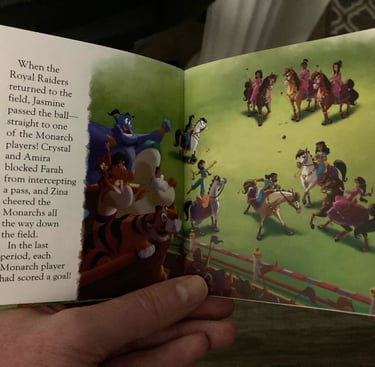

The Princess Polo Games features Jasmine as a girl of action and leadership…and yet one strangely non-competitive as she essentially throws away her team’s chances of winning to their rivals. This is the "princess principle," of course—that fun and fair play are more important than absolute victory, that participation and teamwork trump absolute glory. A moral, in other words, comfortably in sync with the feminine viewpoint, yet curiously contradictory for a story that otherwise promotes the more masculine focus on determination and becoming the “best.” Perhaps the tale’s more poignant message is in its secondary point—every soul has a special gift or skill to contribute even if it isn’t immediately obvious. Finding that virtue, indeed, is the true key to victory. The moral (maybe): Winning isn’t everything. Sometimes, it’s enough to just play, have fun, and bond.
December 13th
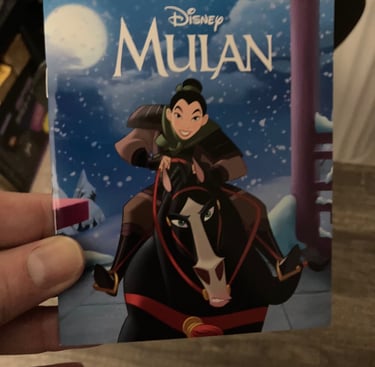



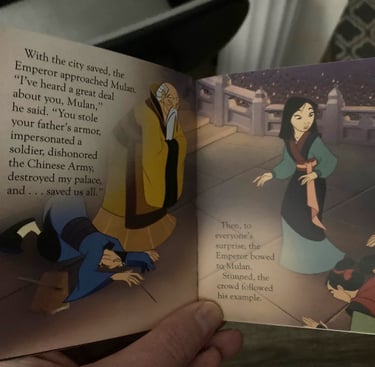

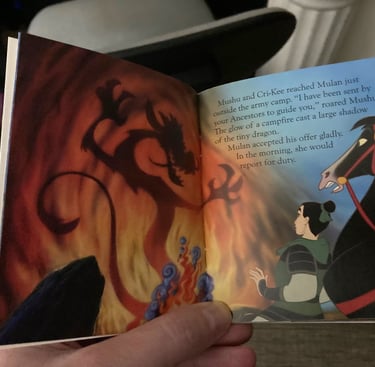

Day 13 adapts Disney’s Mulan to the printed page. It’s a hurried retelling, capturing the film’s primary plot points but losing much of the original story’s humor and charm, minimizing Mulan’s many early faux pas as she flails to impersonate a male soldier. Of course, Mulan was always a tale of wish-fulfillment; what if a maiden could surpass her male counterparts—ally and foe alike—to be immortalized as one of China’s greatest heroes…nay, saviors? It’s a step beyond the classical "defeat the dragon and save the princess" tale; Mulan is about willing women to be more like men, imbuing man’s courage and durability with a maiden’s earnestness and inner strength. And yet, a case could be made that the tale tries too hard—overcompensates too much—to make its dubious point. Are men and women essentially interchangeable? Can women match men in every way, and moreover, is she obligated to try?
Some princesses strive for the more peaceful path, as is the feminine tradition. And a few, for better or worse, opt instead for a different trail, cutting their hair and adopting a sword. The Moral: Wartime is for women, too?
December 14th




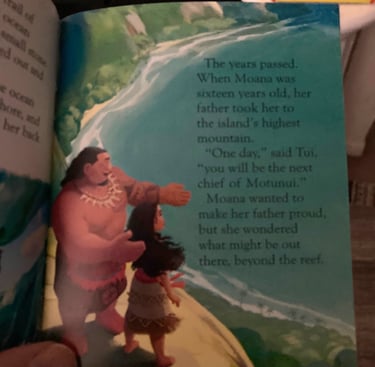

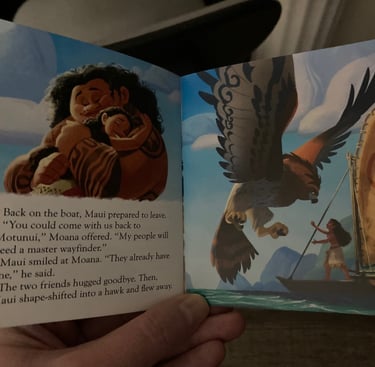

December 15th
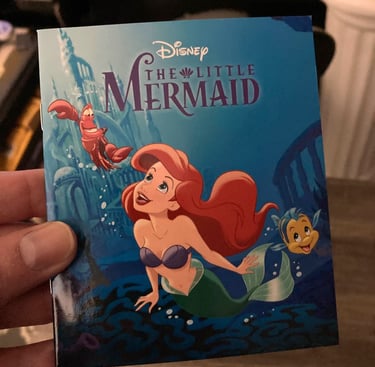

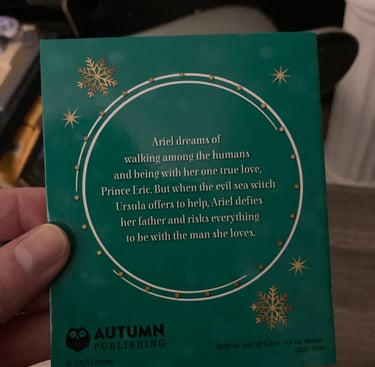

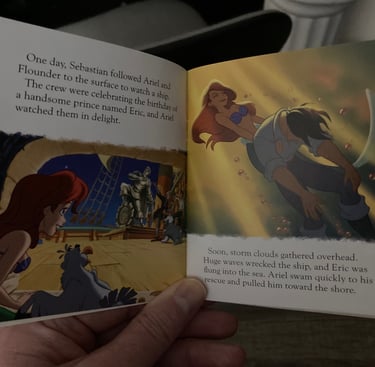

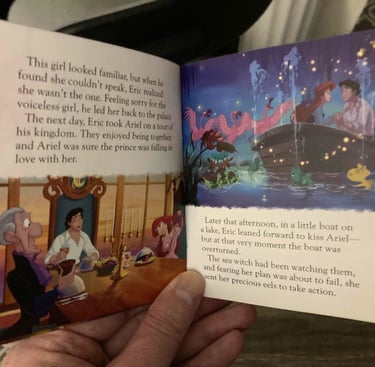

The Little Mermaid converts the famous film into another pocket-sized booklet, and like this calendar’s other adaptations, it skips most of the original story’s finer details for what amounts to be a detailed summary. It’s a fun summary, though, following its hopeful heroine’s journey from unhappy mermaid to confused human to grateful bride as she fights to be by her prince’s side. But more than the tale, the book benefits from a movie drenched in the finest of artistic design—especially the titular Ariel herself who so ably illustrates that perfect ratio of winsome innocence to womanly form. She’s the perfect fusion, in other words, of the Disney Standard, of that Princess Best—of exuberance and elegance mixed with a voice of blessed finesse. This toddling booklet, in other words, is but the hum to the movie’s grander, more symphonic score. Sometimes, a work is so great, its worth overflows to what would otherwise be just a vapid synopsis.
The Moral: If the love is real and shared with zeal, then Fate will somehow seal the deal.
December 12th
The calendar’s fifteenth entry is yet another film adaptation, this time of Moana, that tale of oceans and gods and man’s innate chase for adventure. Or rather, woman’s? The story, indeed, could easily swap its lass for a lad, the boy dreaming to venture beyond his humble home to explore and settle that great unknown. Odysseus, Taran, Indiana Jones, Luke Skywalker…these were men (or boys becoming such) answering that timeless, eternal call to brave and/or otherwise tame a dangerous land. Men, indeed, have always fought the wars, sailed the seas, built the cities. But Moana clips the prince for its eponymous princess, or rather, an Oheneba—a chieftan’s daughter being groomed to take his place one day. But first, she must sail some perilous seas, join forces with a demigod, and defeat an angry demon.
The key message, apparently, is one of female agency mixed with a smidge of subversion; telling girls to “set sail and discover their own horizons” works fine as a metaphor for personal growth, but real daring requires a certain penchant for risk…a certain acceptance of death. The stories of most adventurers aren’t ones of glory…they simply go untold. For, as the old adage says: Dead men tell no tales. And that goes for women, too.
The Moral: To know oneself is to find one’s destiny.
Next blog: December 16 - 20
While strolling the forest to visit her dwarven friends, Snow White takes a wrong turn and finds herself at the home of three considerable giants. After keeping out of sight, the princess eventually reveals herself with a humble hope: Might they, maybe, show a fair maiden home? Fortunately, they’re a friendly threesome who even offer her a yummy meal. Later, Snow White tells the dwarfs about her adventure; the seven tiny gents are skeptical about her new friends, so Snow decides to throw a party in which the two rather incongruous groups can get acquainted. After playing games and sharing good food, the two races learn that, despite their tiny versus giant persuasions, they have much more in common than not.
Snow White and the Giants, at the very least, stays true to the character of Snow White; ever the sweetheart, the gentle lass is eager to foster understanding and make new friends. And these, indeed, are the virtues practiced by any kindly, winsome girl. In this sense, the tale feels like a proper continuation of the “Snow White” story just as The Tambourine Dance felt like a believable, low-key addendum to the epic events of Ariel's film. Both princesses are having their happily ever after, but that doesn’t mean there isn’t more to learn, more relationships to be had. Moral: Don’t let superficial differences distract from what could be a wonderful new friendship.
Contact: lostnostalgiaproductions@gmail.com
Website: www.lostnostalgia.com
Like what we're doing? Please consider throwing us a dollar into our Patreon page's tip jar!


